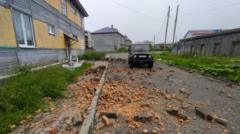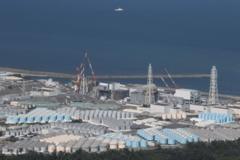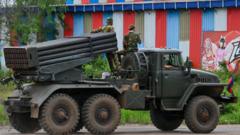The Thai police have apprehended a Chinese national in connection with the catastrophic collapse of a 30-story building in Bangkok, which resulted in numerous fatalities during last month’s earthquake.
Thailand’s Arrests Over Bangkok Building Collapse Amid Earthquake Fallout

Thailand’s Arrests Over Bangkok Building Collapse Amid Earthquake Fallout
Authorities take action against Chinese executive linked to the collapse of a high-rise building in Thailand’s capital during a recent earthquake.
April 21, 2025, 4:35 a.m. ET
In a significant development following the deadly building collapse in Bangkok, Thai authorities have arrested a Chinese executive linked to a state-owned construction firm. The collapse occurred during an earthquake that struck the region on March 28, leading to 47 confirmed deaths and many others still missing.
The individual arrested, identified only by his surname, Zhang, is connected to China Railway 10th (Thailand), a subsidiary of a Chinese state-owned company involved in the tower’s development. This arrest follows a Thai court issuing warrants for four board members of the firm, which underscores increasing scrutiny of the company’s operations in the wake of the disaster. Local reports name Zhang Chuanling as the apprehended executive.
The case has garnered heightened attention as Prime Minister Paetongtarn Shinawatra faces mounting pressure to explain the circumstances surrounding the collapse. She has mandated a thorough investigation of all construction projects associated with China Railway 10th due to evidence that the company attempted to dispose of critical documents after the incident.
Initial investigations have revealed that the firm allegedly violated the Foreign Business Act, a law restricting foreign ownership in local businesses to 49 percent. There is credible evidence suggesting that Thai nationals were used as proxies for the company’s foreign shareholders, raising serious legal and ethical concerns.
Reports from construction workers indicate that cost-cutting measures led to the use of substandard materials in the building’s construction, with several Thai suppliers suspected of providing inferior components. Furthermore, an anti-corruption watchdog has flagged significant irregularities in the construction practices employed.
As Thailand grapples with the ramifications of this disaster, the need for accountability and assurance of safety in construction practices has never been more urgent. The investigation continues as authorities seek to piece together the factors that led to this tragic event amidst a backdrop of natural disaster.
Muktita Suhartono contributed reporting from Jakarta. Sui-Lee Wee serves as the Southeast Asia bureau chief for The Times, directing coverage across 11 countries in the region.
In a significant development following the deadly building collapse in Bangkok, Thai authorities have arrested a Chinese executive linked to a state-owned construction firm. The collapse occurred during an earthquake that struck the region on March 28, leading to 47 confirmed deaths and many others still missing.
The individual arrested, identified only by his surname, Zhang, is connected to China Railway 10th (Thailand), a subsidiary of a Chinese state-owned company involved in the tower’s development. This arrest follows a Thai court issuing warrants for four board members of the firm, which underscores increasing scrutiny of the company’s operations in the wake of the disaster. Local reports name Zhang Chuanling as the apprehended executive.
The case has garnered heightened attention as Prime Minister Paetongtarn Shinawatra faces mounting pressure to explain the circumstances surrounding the collapse. She has mandated a thorough investigation of all construction projects associated with China Railway 10th due to evidence that the company attempted to dispose of critical documents after the incident.
Initial investigations have revealed that the firm allegedly violated the Foreign Business Act, a law restricting foreign ownership in local businesses to 49 percent. There is credible evidence suggesting that Thai nationals were used as proxies for the company’s foreign shareholders, raising serious legal and ethical concerns.
Reports from construction workers indicate that cost-cutting measures led to the use of substandard materials in the building’s construction, with several Thai suppliers suspected of providing inferior components. Furthermore, an anti-corruption watchdog has flagged significant irregularities in the construction practices employed.
As Thailand grapples with the ramifications of this disaster, the need for accountability and assurance of safety in construction practices has never been more urgent. The investigation continues as authorities seek to piece together the factors that led to this tragic event amidst a backdrop of natural disaster.
Muktita Suhartono contributed reporting from Jakarta. Sui-Lee Wee serves as the Southeast Asia bureau chief for The Times, directing coverage across 11 countries in the region.


















